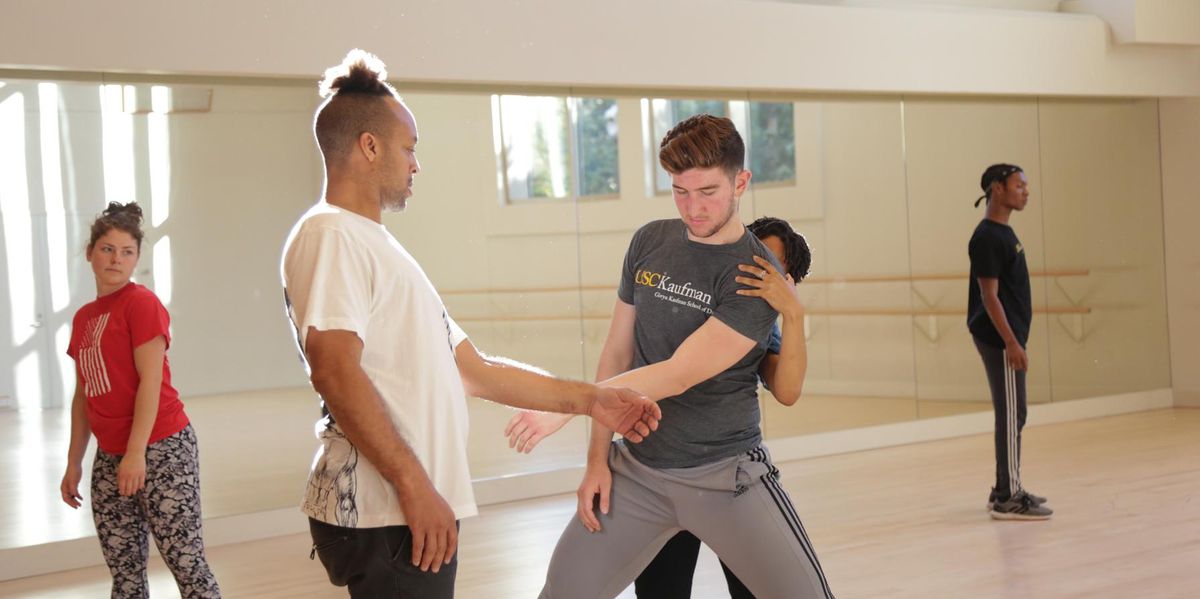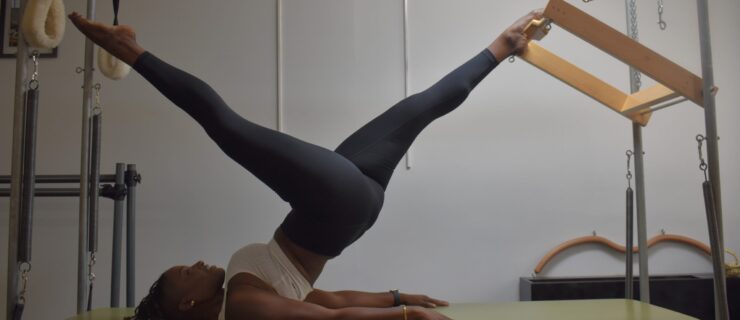7 Ways to Make the Most of a Mentor
Throughout his career, choreographer d. Sabela grimes has relied on a number of different mentors. One provided the connection for his move to South Africa. Another planted the seed for creating concert dance, and yet another helped him develop a deeper understanding of dance outside of movement practice.
“When I think of this word ‘mentor,’ I think of consensual guidance,” says grimes, now associate professor of practice at USC Glorya Kaufman School of Dance. “There’s an accountability that’s shared.”
Building a dance career is never as easy as you want it to be, points out Ashley Werhun, a former contemporary ballet dancer who co-founded the mentorship platform Mentorly. “Mentors help you see things you weren’t considering,” she says. If someone’s generous enough to offer guidance, make sure you’re making the most of the mentorship.
1. Be Clear on Your Goals.
Before you seek out a mentor, have an idea of where you’re headed, suggests Werhun. She recommends that dancers do a deep dive into their ambitions: Ask yourself what success looks like to you, what you want your career to look like in five years and what challenges keep you up at night. “Be clear on your hopes and dreams,” she says. “Then your mentor can help shape the next steps.”
2. Know What You Want Out of the Relationship.
When you’ve set a time to connect, be prepared with a clear agenda. “Go with expectations for the meeting, and have a clear ask,” says Werhun. “It makes someone more interested when you come with the reflection already done.” It’s okay to not be completely certain about what you need as long as you have a defined intention and a desire to grow. “Don’t leave it up to the mentor to interrogate you,” says grimes.
3. Ask for Guidance, Not for a Job.
When you’re building a relationship with your mentor, expect nothing more than insight and guidance. “Don’t ask for employment or ‘What’s the answer to my problem?’ ” says Werhun. “Once they see enough potential in you, they’ll make the offer.”
4. Ditch Outdated Ideas of Parameters.
Traditional notions of mentorship have changed. Having a mentor no longer equates to maintaining one formalized, long-standing relationship throughout your entire career. “Acknowledge that there are seasons,” says grimes. “A student may not resonate with a mentor right now. They could connect one time, then have a gap, and then connect again on something else.”
5. Be Proactive.
Mentor–mentee relationships require consistency and effort to make them impactful. “Are you invested in the mentor and updating them regularly—on the good things and the bad things?” asks Werhun. Developing the relationship and maintaining regular communication can keep the relationship from feeling transactional.
6. Go Your Own Way.
Avoid the temptation to follow the exact career your mentor took. Instead, lean in to the next steps that are the best fit for your goals. “You’re not supposed to copy the same path,” says Werhun. “Listen to what they’ve learned, and then carve your own.”
7. Be Gracious.
Respect your mentor and their time. When requesting feedback outside of scheduled meetings, grimes suggests a warm approach. “Don’t assume they have all the time in the world to review your work. You could ask ‘Do you have the time?’ or ‘Are you interested?,’ or say ‘I’d love to share this with you,’ ” he suggests.
And as your mentor does their part to offer pathways and share their insights, be sure to thank them. Werhun says, “Show gratitude to your mentors whether they helped you a little or a lot.”
But First: How to Find The Right Mentor
When looking for a mentor, seek out someone who’s had a career that aligns with your goals. “A mentor can be someone you admire or who’s done what you’re interested in doing,” says grimes. “Pay attention to who you resonate with, and allow the relationship to develop organically.” While social media platforms allow you to follow and connect with professionals you admire, it may be difficult to develop an authentic relationship there considering all the competing distractions. More useful places to look for a mentor include:
- your hometown dance studio
- your university’s fine arts department
- your school’s alumni network
- online mentorship platforms




